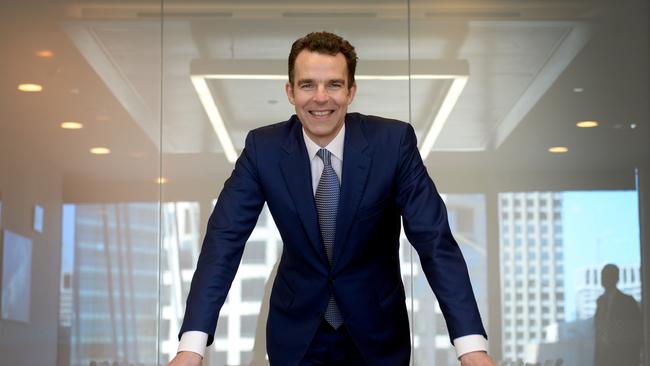Reliance shares tumble after it takes wrench to earnings outlook
Reliance shares have tanked more than 20pc after it cut its full-year earnings guidance.

Shares in Reliance Worldwide have tumbled as much as 26 per cent after the plumbing supplies company lowered its full-year earnings guidance, blaming changed trading conditions for the downgrade.
The company said it now expects earnings before interest, tax, depreciation and amortisation for the full-year to be within the range of $260 million and $270m, down its earlier guidance of between $280m and $290m.
Reliance shares dived 26 per cent to an almost 2-year of $3.40 in early trade in the wake of the profit warning but have since pared those heavy losses to be down more than 15.5 per cent at $3.895 at 11.40am (AEST).
The profit warning comes after the company’s founder and former chairman Jonathan Munz sold down a $367m stake in Reliance in February, selling out at $4.65 a share.
The company said its original earnings guidance was based on the false assumption that a common freeze event would occur in the US, causing cracked or broken pipes over a sustained period, from which Reliance would usually benefit.
The lack of a freeze event was estimated to have reduced net sales by between $12m and $15m for fiscal year 2019, Reliance (RWC) told the ASX this morning.
Lower-than-expected sales in the US business, as a result of a number of partners pursuing strategies in the second half of the financial year to actively reduce inventory on hand, had also impacted.
“While this is ultimately a timing issue due to these inventory strategies rather than a fundamental demand issue, we are not assuming any meaningful change in customer inventory levels during the remainder of fiscal year 2019.
Sales in the Asia Pacific region, the company’s smallest operating segment, had underperformed in the second half, mostly as a result of a sharper-than-forecast decline in new home construction in Australia.
The company also warned that the recent increase in US tariffs on Chinese imports could have a negative impact on its Americas segment in fiscal year 2020, by increasing the cost of materials, but said that it was not expected to have a material impact on its earnings for the 2019 financial year.
“Reliance Worldwide will seek to mitigate the impacts through customer price increases or negotiated supplier price reductions, but say it is too early to estimate the impact on FY2020 performance at this time,” the company said.
Still, Reliance said it is pleased with its current trajectory and underlying performance across its core products and geographies.
“Reliance Worldwide remains a global leader in both brass and plastic push to connect fittings technology,” the company said.
“Given the current relatively low penetration levels of brass and plastic push to connect, particularly in the USA and the UK, there remains sizeable runway to grow product sales.”
Reliance said it remained pleased with the progress of integrating the John Guest business in the UK, which it acquired in 2018.
But its core businesses in the UK and Spain had not met expectations in the second half. That was partly due to a decision to exit its Thermal Interface Units product line in the UK.
“While Reliance previously saw these products as an opportunity in the context of its smaller UK business, it was determined that the growth opportunities presented by the combined Reliance, John Guest product portfolio are more attractive and should be prioritised,” the company told the ASX this morning.
“Accordingly, given the amount of time and resources which would be required to grow these Reliance UK products to establish market leading positions and our preference to focus resources on the most attractive growth opportunities, a decision was taken in the second half to exit those product categories.”
Macquarie analysts called the downgrade a “negative surprise”, but left an outperform rating on the stock, saying the company would be better positioned than its competitors.
“The ongoing trade issues between the US and China have brought more uncertainty,” the analysts said.
“Reliance Worldwide has developed contingency plans, but would likely need to seek price adjustment from customers or cost reductions from suppliers.”
The analysts estimated that Reliance would need to mitigate a cost of between $10m and 12m, which could be possible in the context of high contribution margins.


